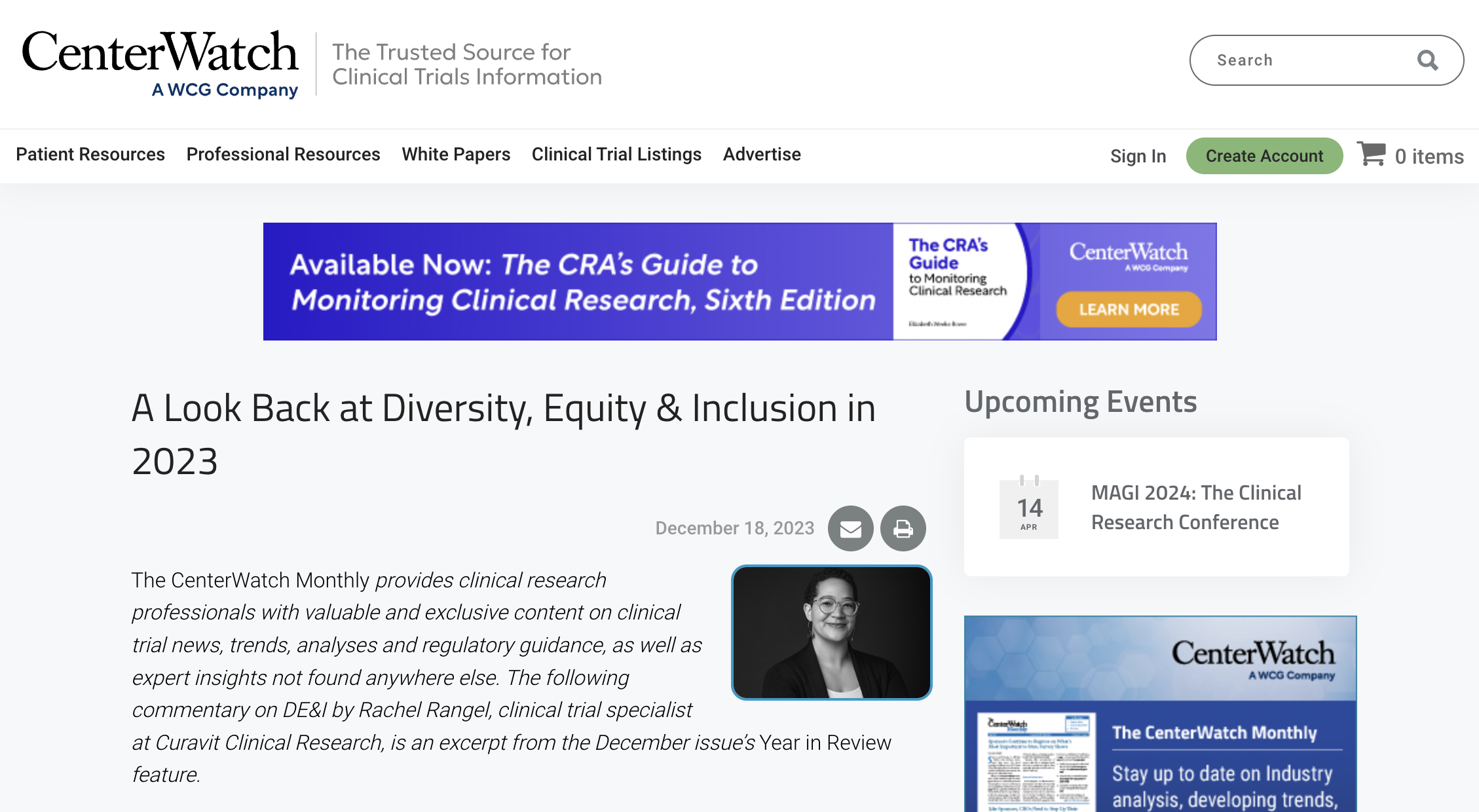December 18, 2023

The CenterWatch Monthly provides clinical research professionals with valuable and exclusive content on clinical trial news, trends, analyses and regulatory guidance, as well as expert insights not found anywhere else. The following commentary on DE&I by Rachel Rangel, clinical trial specialist at Curavit Clinical Research, is an excerpt from the December issue’s Year in Review feature.
In 2023, the life sciences industry reupped its commitment to improving diversity, equity and representation in clinical trials. Sponsors have historically failed to achieve adequate representation of minority groups within their clinical trials, but thanks to new regulatory legislation issued by the FDA that requires sponsors of certain clinical trials to submit diversity action plans, report demographic data for participants and actively recruit from underrepresented populations, top pharmaceutical companies are now prioritizing DE&I across their trial portfolios.
For instance, in March 2023, Bristol Myers Squibb announced a multimillion-dollar investment in its global inclusion and diversity goals, including a focus on increasing clinical trial diversity. The company claims that nearly 60 percent of its clinical trial sites are now located in racially and ethnically diverse areas of the country. By embedding more clinical trial sites in diverse communities, BMS is helping enroll clinical trial participants that are more reflective of the broader patient populations they aim to serve and better aligned with the epidemiology of the diseases studied.
While the industry is moving in the right direction, racial and ethnic minorities still only account for 2 percent to 16 percent of trial participants despite comprising 39 percent of the U.S. population. One of the biggest obstacles is patient recruitment and retention from historically underrepresented populations. To overcome these challenges, sponsors like MedRhythms are starting to collaborate with partners that specialize in diverse patient recruitment to carefully plan and execute recruitment and retention strategies that reduce some of the traditional barriers to study participation and are more conducive to reaching a broader demographic.
Actionable solutions that are gaining popularity in diverse participant recruitment include:
- Implementing modern research models, such as decentralized clinical trials that use virtual sites to meet participants where they are
- Engaging with diverse communities through partnerships with community organizations, leaders and medical providers
- Fostering diversity in research teams to better understand and empathize with participants from diverse communities
- Monitoring diversity milestones in real time to expeditiously rectify any gaps in representation
- Addressing cultural linguistic barriers by translating study materials into different languages, using culturally appropriate messaging and providing interpretation services as needed










